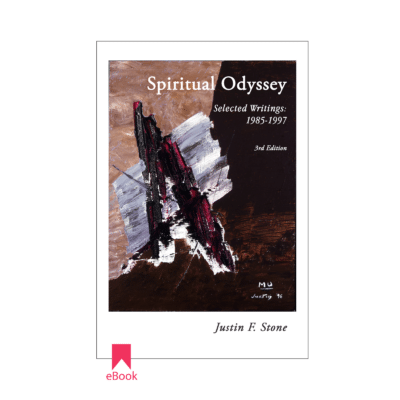
As soon as we have words we have concepts. No matter how articulate the speaker, how believable the teacher, using words forces the speaker to form concepts in order to convey ideas to others. When one Zen teacher continually counsels his followers to “rest in the unborn,” we realize he is speaking from a deep experience, but trying to phrase it so his listeners will understand is a hopeless effort. To him, being “unborn” – and so, “undying” – was real, but, to his followers, it became a concept that they tried to duplicate or imagine. I had a deep experience when it became clear that all things are as they have always been, roughly the same as “unborn,” but there seems no way to convey that experience to others. Only the drinker knows if the water is hot or cold.
There are two ways in which such misrepresentation can come about. One way is for someone to have a deep experience and then try to put it into words so he or she can convey it to others. This was the case when Hakuin Ekaku, the great Japanese Zen teacher and mystic, after his first great enlightenment ex- perience, said, “After this, seeing things of the world was like seeing the back of my own hand.” This is very articulate, but it still doesn’t make it possible for the listener to share in the experience.
The other way is for someone to hear or form a concept and then try to have an experience to match that concept. A sincere Christian will have a Christian experience, based on that conditioning, and a Buddhist will see and hear things based on that conditioning. In each case the experience will be the creation of that person’s own mind, very subjective, and not something valid that just happened.
Those who meditate regularly will probably have experiences that in no way follow what they have been taught. They may then rationalize the experience – and so spoil it – in order to bring it into conformity with what they feel they “should” realize.
Those who do T’ai Chi Chih regularly have not been taught how they should feel or what they should experience. Whatever happens is right and does not have to be adjusted to any doctrine or dogma. It is for this reason that I sometimes do not answer questions that would call for conceptual answers; they would spoil the experience.
To look at a beautiful body of water without relating it to anything is what Krishnamurti called “choiceless awareness,” which, while very descriptive, is again a concept. It is better to just experience it.
Words have their place and are absolutely necessary for communication and the accumulation of knowledge, but they are not capable of taking the place of a valid experience. Words are, by their very nature, dualistic, and no realization of Oneness (wholeness) can come from subject-object thinking. In short, do not be afraid to experience without labeling, or even remember- ing, the experience.

